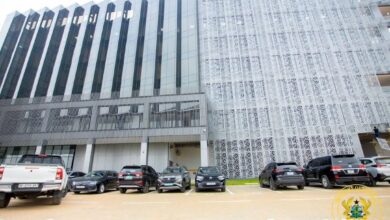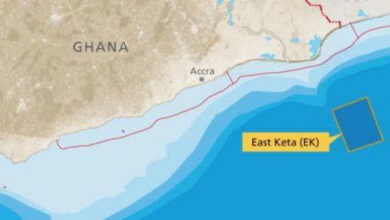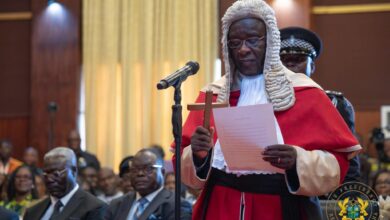
Energy Ministry pushes for open bidding for power generation
The government has introduced a Legislative Instrument (LI) that mandates the procurement of power generation through competitive bidding as part of the reforms in the country’s energy sector.
The Energy Commission (Planning and Competitive Procurement of Additional Electricity Generation Capacity) Regulations, 2025 (L.I. 2508) represents a major policy shift aimed at enhancing transparency, reducing electricity costs and attracting private sector investment.
The Minister of Energy and Green Transition, John Abdulai Jinapor, disclosed this at the African Energy Week in Cape Town, South Africa.
The 2025 African Energy Week which started from September 29, and is expected to end tomorrow, October 3, is on the theme: “Invest in African Energies: Positioning Africa as the Global Energy Champion”.
Competitive bidding
Under the competitive bidding regime, there will be a structured process where utility companies, such as the Electricity Company of Ghana (ECG), or regulators request proposals from multiple power generators to buy electricity, aiming to procure the cheapest and most reliable power through transparent, fair and open competition.
The process is aimed at ultimately reducing costs for consumers.
Developers submit bids outlining their projects and the price they can generate power for, and the bids are then evaluated.
Although Ghana already has long-term contracts with Power Purchase Agreements (PPAs), the bid process is still important to drive down prices, forcing those even with built-in take-or-pay clauses in their contracts to reduce their rates.
Mr Jinpapor explained to the energy community that the legislative instrument was a milestone in line with the vision of President John Dramani Mahama to deliver affordable electricity tariffs that could spur industrial growth and economic transformation.
Currently, power generation accounts for approximately 65 per cent of the total cost in Ghana’s electricity value chain.
The introduction of competitive procurement is intended to address this imbalance by driving down costs, improving efficiency, and ultimately delivering better value to consumers.
“This reform marks a new era for Ghana’s power sector.
Competitive bidding will not only ensure value for money, but also unlock innovation and greater private sector participation,” Mr Jinapor explained.
Key objectives
The LI outlines a comprehensive framework to guide future power generation procurement.
Its core objectives include enhancing transparency in the energy sector, promoting cost-effectiveness and affordability attract a diverse mix of technologies and investors
It would also ensure predictable and streamlined procurement processes.
Mr Jinapor said to ensure effective implementation, steps were being taken to strengthen the capacity of regulatory institutions.
“These include improving the vetting of licence applications and maintaining a comprehensive, up-to-date Power Purchase Agreement (PPA) register, enhancing transparency and oversight,” the energy minister added.
Mr Jinapor said the ministry was working closely with international partners, including the World Bank, the African Development Bank, and the Energy for Growth Hub, to standardise Power Purchase Agreements (PPAs), build local capacity in PPA design and negotiation; ensure fair and balanced returns for investors, and deliver high-quality electricity at competitive prices.
“This collaboration aims to make Ghana’s power sector more bankable, efficient, and aligned with global best practices — while ensuring long-term sustainability and consumer protection,” the Minister of Energy and Green Transition added.
New chapter for energy sector
He told the gathering that with the passage of LI 2508, Ghana had positioned itself as a regional leader in energy sector reform, demonstrating a strong commitment to transparent governance, fiscal discipline and inclusive growth in the power industry.
Mr Jinapor said the new policy framework was expected to foster innovation, reduce costs, and create an attractive environment for investment, as the country worked towards a resilient and sustainable energy future.




